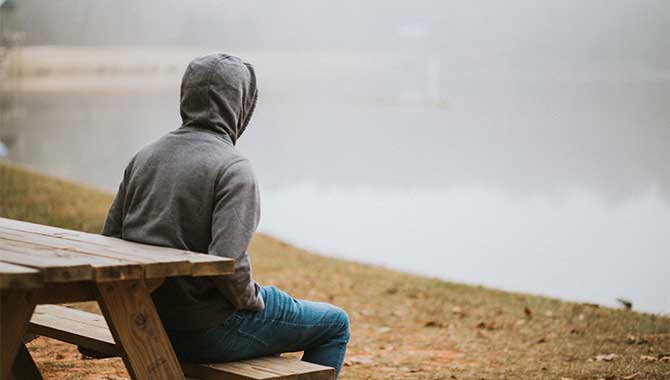Be still and know that I am God. ~ Psalm 46:10
Silence is a love language. –Barbara Brown Taylor
Last week Jennifer and I took a vacation. Both of us were thirsty for rest and restoration, so we ended up at The Franciscan Renewal Center (FRC) in Scottsdale, Arizona. The Center is an oasis of peace in a valley surrounded by desert mountains. Golden barrel cactus, prickly pear, Mexican feather grass, Mojave aster, saguaro cactus, desert palm trees, and desert marigolds graced the tranquil grounds. The white winged doves, cactus wren, and roadrunners seemed at peace and undisturbed by our presence. Even the rabbits just stood still when we walked by them. I nodded at them while they chewed on some undisclosed snack.
We swam early in the morning while it was warm but not too hot. We took walks through the healing gardens and gazed upon the flora and the wildlife. In the solitude and the silence of the FRC, time seemed to stand still much like the saguaros. Space to be. Vastness. We read books in the afternoon and took naps with little concern for when we should wake up. We lived a life of silence (even though we did have meaningful conversations with one another) for four days.
We need silence. Catherine de Hueck Doherty (founder of many hospitality houses) writes, “Deserts, silence, and solitudes are not necessarily places, but states of mind and heart. These deserts of solitude and silence can be found in the midst of the city, and in the everyday of our lives.” We need silence in order to draw closer to one another and our Creator. We need silence if we desire to be present “not only physically but with empathy, sympathy, friendship, and understanding,” says Hueck Doherty.
For me, maybe you as well, it is much easier to “be still and know God” (Psalm 46:10) at a spiritual retreat center anchored in desert solitude but can we be still and “drink the nourishing waters of silence” (Hueck) in our everyday lives?
How can we live a life of silence with all the noise and kinetic energy all around us and within us?
Catherine de Hueck Doherty says, “By standing still.”
She reflects. Stand still and allow the restlessness and anxiety of our lives to fall away like a “worn out dusty coat.” Stand still and look deep into our motivations in life. Why do we do what we do? Be gentle and honest. Stand still and look closely at a flower, a tree, a bird, or another human being. Stand still and lift our hearts and hands to our beloved Creator. Stand still, breathe deeply, and “the spirit will clear all cobwebs of fear, greed, and narrow-heartedness away from our soul.”
The world expects us to go faster and faster while the Psalmist says, “Be still and know God.” Enter into solitude and silence and let the love, the joy, the peace, and the patience of Grace saturate our soul. For “silence is the love language of God” says Barbara Brown Taylor. “We seek solitude and silence not to be away from people but in order to hear the divine whisper better,” writes Richard Foster.
Do we experience little moments of solitude each day? A mother listens to the breath of her child. An old man rests on a park bench. We gaze upon the new green from the summer monsoon. The sun warms our body. We ponder a well-crafted word or phrase. Light plays with the shadows. A couple dances. We pray. Standing still brings silence, tranquility, and an awareness of the divine presence.
Jesus lived in solitude, and he lived in community. He began his ministry by spending forty days alone in the desert (Matthew 4:1-11). How do we begin our days? Before he chose the twelve disciples, he spent the entire night alone in the desert hills (Luke 6:12). Do we spend time in silence before we make decisions? Foster comments, “The seeking of solitary places was a regular practice for Jesus. So, it should be for us.”
On our last night at the Franciscan Renewal Center, a women’s retreat arrived. Jennifer and I went to the dining hall and thirty to forty women were chatting, laughing, eating, and telling stories. It was loud.
I tapped the shoulder of the lady sitting at the table next to me. “What kind of retreat are you all on?” I asked. “Silent,” she said.
We laughed and laughed and laughed.
Foster writes, “Though silence sometimes involves the absence of speech, it always involves the act of listening.” We listen to the heartbeat, the joy, and if we are lucky, the laughter of God. And we listen to the sorrow of God as well. Jennifer and I ate our meal in solitude with our sisters in Christ.
Blessings, peace, and all goodness,
Craig
Note: Later that night, the women’s retreat had their opening ceremony where they formally entered a vow of complete silence for the weekend. They were amazing.

